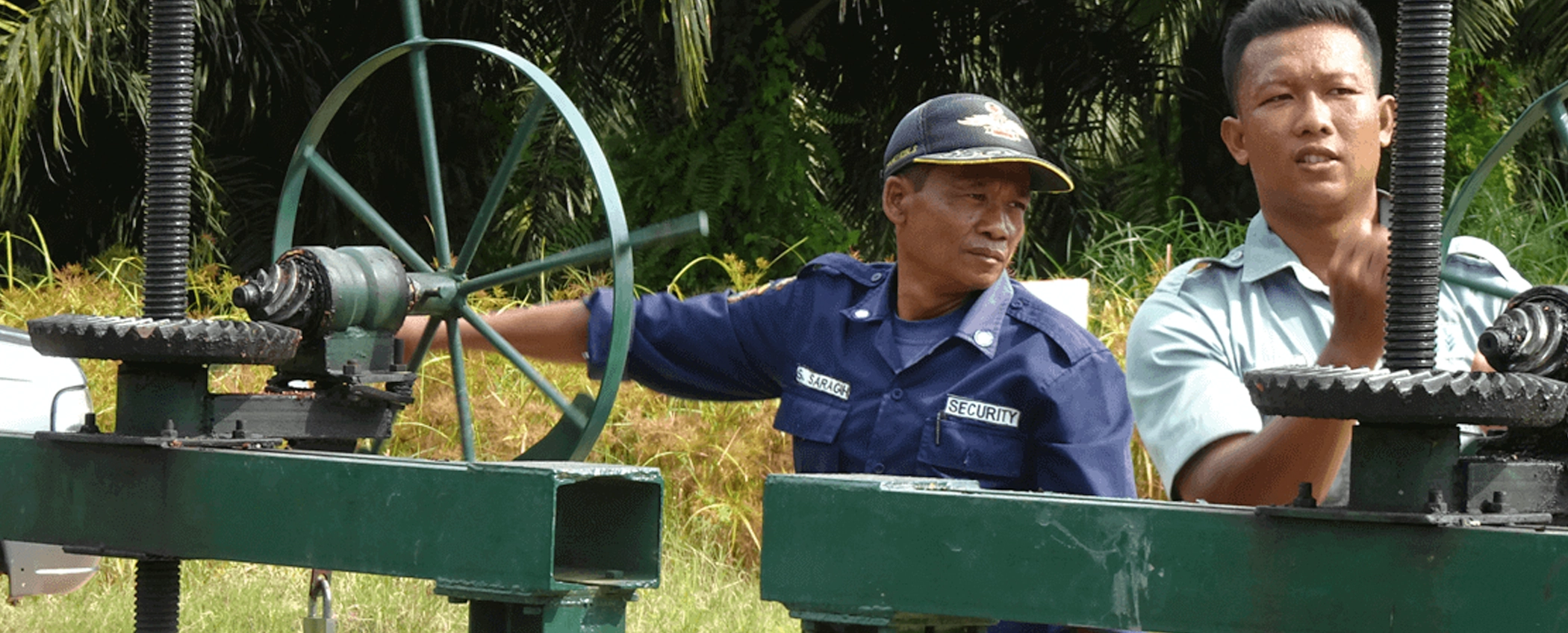Greenhouse gas emissions

The Group assesses greenhouse gas emissions by its mills, embodying that produced by its crop of fresh fruit bunches, using the ISCC 205 tool produced by International Sustainability and Carbon Certification (“ISCC”).
The results of its 2023 assessment for the mills operating throughout the year were:
| Kg CO2 equivalent per tonne CPO | |
|---|---|
| Pangkatan mill, North Sumatra | 409.97 |
| Bumi Permai mill, East Kalimantan | 394.95 |
| Tengkalat mill, Bangka | 372.67 |
| Benuang mill, East Kalimantan | 427.72 |
| Rahayu mill, East Kalimantan | 439.98 |
| Kenanga mill, Musi Rawas | 334.50 |
In accordance with its RSPO NDPE (No Deforestation, No Peat and No Exploitation) commitments, the Group and its associated smallholders co-operative schemes do not plant on peat regardless of depth and on high carbon stock (HCS) areas, since November 2018. This applies to all our suppliers, where peat is defined by the percentage of organic matter within the soil, as detailed in the RSPO guidelines.
Where we have older plantings that were made in peat, we use best-management practices as advised by expert agronomists to maximise soil conservation. These include techniques for minimising erosion and maintaining water levels to slow down the decomposition of organic matter. In addition, we recycle nutrients through composting. There has been no increase in the Group’s peat landbank since 2018.
The Group has under no circumstances used fire as a means of land conversion on the Group’s estates, or that of its associated smallholder co-operatives, developed since it began planting its new projects in 2005. All our plantations have teams of fire personnel that are trained to be alert to fires and react quickly to any that do arise through natural forces or by accident, and we operate a fire watch from watch towers on all our estates. We also maintain water bowsers with water tanks that can be quickly deployed on the estate in an effort to extinguish any fire. Where hotspots are identified near the Group’s areas or those of its associated smallholders, these are promptly investigated. A report is made to the RSPO and, where evidence of fire is found, if appropriate, to the police.
Updated April 2024

Sustainability report
Read about our focus on the environment, sustainable palm-oil production and social impact.

Community
Superlative smallholder schemes with medical care provided on the plantation.
